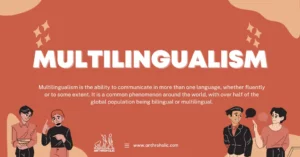AI Answer Evaluation Platform Live Now. Try Free Answer Evaluation Now
Literariness
“Literariness” refers to the qualities or traits that separate literary works from other forms of writing, such as technical manuals, journalistic articles, or ordinary speech. These traits might include the use of metaphorical language, the building of complex characters, the study of universal themes, and attention to aesthetic components such as rhythm, melody, and image.

The notion of literariness is widely debated and subjective, with several critics and theorists proposing their own criteria for what distinguishes “literary” work. Some may suggest that literariness is determined by the formal aspects of a work, such as its structure or use of language, while others would highlight the content or context of the work, such as its significance to social or historical issues.
Lastly, the idea of literariness is flexible and may vary depending on cultural and historical events, as well as individual preferences and biases. Nevertheless, it remains a crucial term for appreciating the specific qualities and effects of literary works.
Literariness in Anthropology
In anthropology, the notion of literariness is widely applied to analyze the ways in which ethnographic writing may be labeled a form of literature. Ethnography is the written description and study of human civilizations, and anthropologists have long grappled with how to represent the richness and intricacy of their fieldwork experiences in literary form.
One approach to ethnographic writing that develops literariness is characterized as “ethnographic fiction.” This entails mixing fictional tactics like narrative structure, language, and characters to produce a more fascinating and immersive picture of anthropological encounters. Ethnographic fiction may blur the distinctions between fact and fiction and emphasize the core difficulties surrounding the ethics and politics of representation in anthropology.
Several scholars have stressed the poetic features of ethnographic writing, such as the use of metaphor, imagery, and sensory description. This approach considers ethnography as a form of “thick description,” where the writer’s attention to detail and sensory experience may impart a greater knowledge of cultural behaviors and beliefs.
Overall, the notion of literariness has been useful in pushing anthropologists to concentrate on the ways in which their writing styles construct the picture of other cultures and people. By foregrounding the aesthetic and formal components of ethnographic writing, anthropologists may give more complex and sophisticated interpretations of the social world.
Tools to apply Literariness in anthropology
There are a plethora of strategies and tactics that anthropologists may adopt to boost literariness in their writing and analysis. Here are a few examples:
- Narrative Structure: One technique to create a literary atmosphere in anthropological writing is to utilize narrative tactics such as plot, character, and conflict. By structuring ethnographic accounts in a way that engages readers’ emotions and attention, anthropologists may develop more interesting and memorable narratives.
- Poetic Language: Ethnographers may apply poetic tactics such as metaphor, simile, and imagery to portray a sense of richness and depth in their work. This may help boost the sensory and emotional components of a cultural experience.
- Dialogue: Incorporating conversation into anthropological writing may serve to bring the voices of cultural informants to life and represent the complexity and nuance of their viewpoints.
- Reflexivity: By being introspective about their own positionality and preconceptions, anthropologists may construct a more nuanced and self-aware narrative of their fieldwork experiences. This can entail acknowledging the limitations of their own views and observing the power dynamics at play in their relationships with cultural informants.
- Ethnographic Fiction: As shown above, ethnographic fiction may be a great approach for bringing literariness into anthropological writing. By using fictional tactics like character development and plot, ethnographers may present a more intriguing and immersive account of their fieldwork experiences.
These strategies are merely a few examples of how anthropologists could infuse literariness into their writing and analysis. Lastly, the idea is to achieve a balance between the analytical rigor and objectivity of traditional ethnography and the subjective, experiential features of creative writing.




